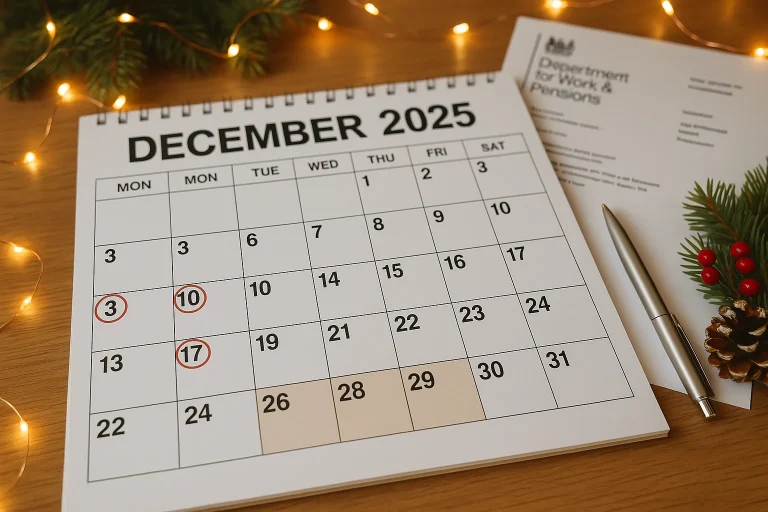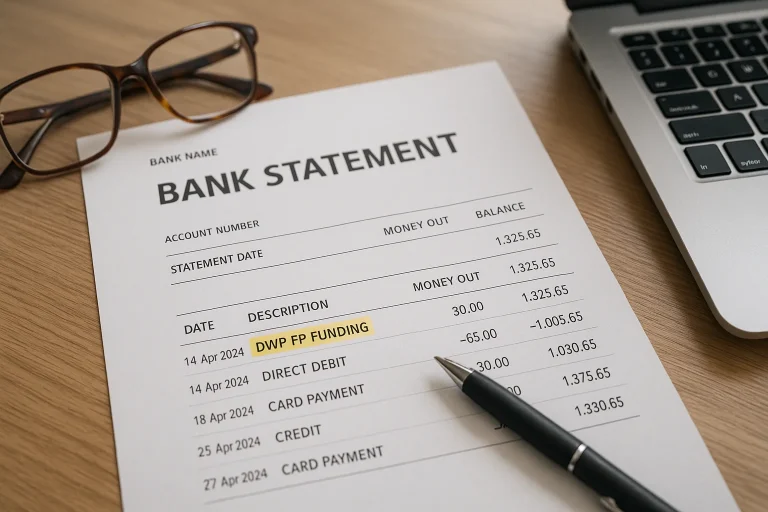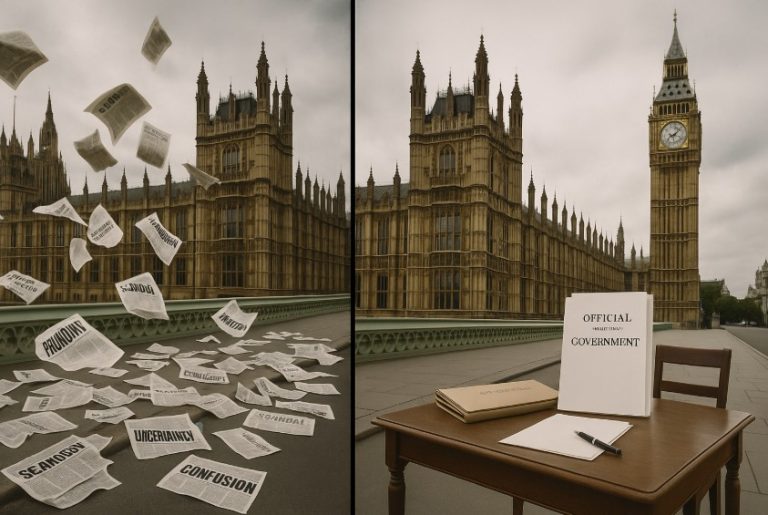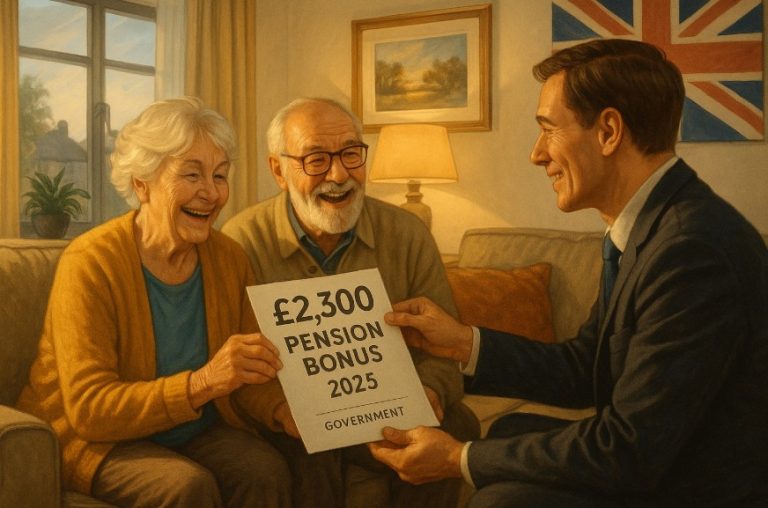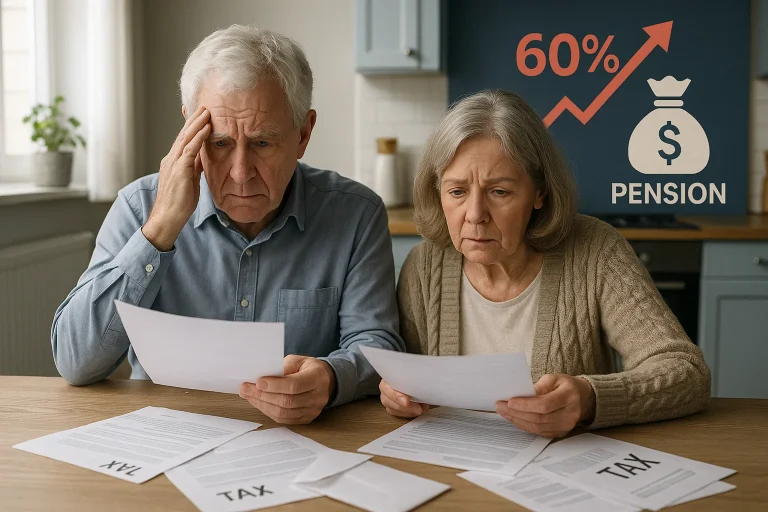As households across the UK continue to manage rising living costs, staying informed about changes to benefit and pension payments is essential.
In September 2025, millions of people receiving financial support from the Department for Work and Pensions (DWP) will see payments issued on their usual schedule.
With no bank holidays affecting the system this month, this guide outlines the exact payment dates and additional financial assistance available to eligible individuals and families navigating ongoing economic pressures.
Why Are New Payment Dates Important for September 2025?

The financial pressures experienced by many UK households have not eased substantially, despite inflation returning to levels seen before the COVID-19 pandemic. Essentials such as food, energy, and rent remain costly.
The Resolution Foundation highlights that price levels for key goods are still significantly above pre-2022 standards, while average wages have not kept pace.
Figures from The Food Foundation show that 7.3 million adults, or around 13.9% of households, faced food insecurity in January 2025. This is a clear indication that the cost of living crisis continues to affect millions.
Energy arrears have increased as well, reaching £3.9 billion by the end of 2024, more than double the figure from five years earlier.
These persistent financial challenges emphasise the importance of knowing when benefits and pensions are paid, and what additional support is available.
According to recent data, around 24 million people in the UK currently receive some form of Department for Work and Pensions (DWP) support.
However, as much as £23 billion in benefits is estimated to go unclaimed every year. Identifying all available assistance and understanding payment dates can significantly improve household budgeting and planning.
What Are the September 2025 Benefit Payment Dates?
Most benefit payments in September 2025 will proceed according to their regular schedule, as the month contains no UK bank holidays that could affect the system.
The following benefits will be paid on their normal payment dates:
- Universal Credit
- State Pension
- Pension Credit
- Child Benefit
- Disability Living Allowance (DLA)
- Personal Independence Payment (PIP)
- Attendance Allowance
- Carer’s Allowance
- Employment and Support Allowance (ESA)
- Income Support
- Jobseeker’s Allowance (JSA)
These payments are typically processed directly to recipients’ bank accounts. It is also important to note that those still receiving ‘legacy benefits’ such as income support, JSA, or tax credits should have received notices regarding the transition to Universal Credit.
The DWP has confirmed that the full migration of all legacy benefit recipients to Universal Credit will be completed by January 2026.
When Will Pension Payments Be Made in September 2025?

State Pension payments are made every four weeks, and the date of payment is determined by the last two digits of the claimant’s National Insurance (NI) number. Payments are issued on weekdays and go directly into the recipient’s bank account.
The following table outlines the State Pension payment schedule:
| National Insurance Number (Final Digits) | Payment Day |
| 00 to 19 | Monday |
| 20 to 39 | Tuesday |
| 40 to 59 | Wednesday |
| 60 to 79 | Thursday |
| 80 to 99 | Friday |
No delays or changes to this payment structure are expected in September 2025. Individuals should receive payments as per their regular cycle.
Will Benefit Rates Increase in 2025?
All working-age benefits were increased in April 2025 by 1.7%, which corresponds to the inflation rate recorded in September 2024.
This annual adjustment helps ensure that benefits retain their value in real terms. The increase applies to a wide range of benefits, including:
- Universal Credit
- PIP
- DLA
- Attendance Allowance
- Carer’s Allowance
- ESA
- Other income-related and disability benefits
Additionally, under the triple lock guarantee, the State Pension rose by 4.1%, reflecting wage growth figures from 2024. This equates to a yearly increase of approximately £472 for pensioners.
Looking ahead to April 2026, all Universal Credit claimants will receive an above-inflation increase.
This is part of a longer-term plan under the Labour government’s new welfare bill, which includes yearly increases through to 2029. The first scheduled increase will be at least 2.3%.
However, there will also be a reduction for new Universal Credit claimants who qualify for the health-related element.
From 2026, the monthly rate for this component will fall from £105 to £50 and will be frozen at that rate until 2029.
This change will represent a monthly loss of over £200 for some claimants, highlighting the importance of applying as early as possible under the current rate if eligible.
What Other Financial Help Is Available This September?
Budgeting Advance Loans
Individuals on Universal Credit who are facing urgent financial needs may qualify for a Budgeting Advance Loan.
These loans are interest-free and repaid through automatic deductions from future Universal Credit payments. The loan amount depends on family status and eligibility.
| Household Type | Maximum Loan |
| Single claimant | £348 |
| Couple | £464 |
| With children (claiming Child Benefit) | £812 |
Following updates in the October 2024 Labour Budget, the government introduced a new cap on the total amount that can be deducted from Universal Credit to repay debts, including budgeting advances.
From April 2025, the cap is set at 15% of the standard allowance, reduced from the previous 25%.
Discretionary Housing Payment (DHP)
A Discretionary Housing Payment may be available for households facing housing cost pressures.
Applicants must already be receiving Housing Benefit or the housing element of Universal Credit. DHP funds can cover:
- Shortfalls between rent and Housing Benefit
- Rent deposits for new accommodation
- Rent paid in advance
Eligibility criteria and the amount of support available differ by local council. Interested individuals should contact their council for application details.
Household Support Fund (HSF)
The Household Support Fund, introduced to assist vulnerable households with essential costs, remains active until March 2026.
It is administered by local councils, each of which sets its own criteria and distribution methods.
The HSF can provide help such as:
- One-off payments of up to £300
- Contributions to energy bills
- Support for purchasing essential appliances
This fund is scheduled to transition into a new Crisis and Resilience Fund from April 2026, which will combine the roles of both HSF and DHP.
Can Charitable Grants Help Struggling Families?

Various UK charities offer financial grants to individuals in need. These are particularly helpful for those who may not qualify for government support or who require emergency aid for specific needs. Grants are generally awarded based on personal circumstances and may be available to:
- Carers and people with long-term illnesses
- Bereaved families
- Low-income students
- Individuals with disabilities
- Those who are unemployed
Turn2us provides an online tool to help people search for charitable grants. The amounts awarded can vary significantly, and most organisations require evidence of hardship or specific eligibility.
What Help Is Available for Energy Bills?
Several UK energy suppliers have ongoing support schemes for customers struggling to pay their bills. These schemes may include:
- Emergency credit for prepayment meters
- One-off hardship grants
- Discounted payment plans
The main energy providers offering such schemes include:
- British Gas
- EDF Energy
- Scottish Power
- E.ON
- Octopus Energy
Ofgem’s energy price cap is also relevant in this context. From October 2025, the cap will increase by 2%, moving from £1,720 to £1,755 for an average dual-fuel household on a standard tariff.
Although this is a modest rise compared to earlier fluctuations, many households are being encouraged to explore fixed-rate tariffs, which may offer lower prices than the standard cap.
Can You Get a Council Tax Reduction?
Council tax reduction schemes are available for those receiving low incomes or benefits. Each local authority operates its own eligibility framework. Depending on individual circumstances, households may qualify for:
- A partial council tax discount
- A full exemption from paying council tax
- Additional discretionary support in cases of severe hardship
Applications are made through your local council, typically via an online form.
Are You Eligible for Free Childcare from September 2025?

From 1 September 2025, all working parents of children under five in the UK are entitled to 30 hours of free childcare per week. This policy builds on previous expansions introduced in 2024.
To access the free childcare:
- Parents must apply through the government’s Childcare Service portal
- Eligibility must be reconfirmed every three months
- Families must be working and meet minimum income thresholds
In addition to the free hours, eligible parents may also access Tax-Free Childcare, which offers 20% support on childcare expenses, up to £500 annually per child.
Is There Another Cost of Living Payment Coming in 2025?
There are currently no plans to issue further Cost of Living Payments in 2025. The final round of payments under the previous scheme took place between 6 February and 22 February 2024. These payments were targeted at low-income households receiving means-tested benefits.
Although economic conditions remain difficult, the government has not announced any continuation or replacement of this scheme.
As such, individuals should not rely on additional one-off payments and are encouraged to explore ongoing support measures and benefits instead.
Conclusion
Households should ensure they are receiving all benefits they are entitled to by using online calculators such as the one provided by Policy in Practice.
With significant sums going unclaimed annually, it’s essential to stay informed about support schemes, payment schedules, and new entitlements.
Whether applying for a Budgeting Advance, exploring charitable grants, or checking eligibility for childcare or council tax relief, proactive engagement can help ease financial stress.
Frequently Asked Questions
What happens if my benefit payment is late in September?
If your benefit payment doesn’t arrive on its scheduled date, you should wait until the end of the working day and then contact your payment provider or the DWP directly.
How do I check when my Universal Credit will be paid?
You can check your payment schedule via your Universal Credit online journal. Payments are usually made monthly on the same date.
Will the migration to Universal Credit affect my current benefits?
Yes. If you’re on legacy benefits like income support or tax credits, you will be transitioned to Universal Credit by January 2026. You should receive a migration notice beforehand.
Can I appeal if I’m refused a Budgeting Advance?
Yes. If your application is declined, you can ask for a mandatory reconsideration and provide further details about your circumstances.
Do energy suppliers offer emergency credit?
Some do. Many suppliers provide emergency top-ups for prepayment meters or hardship funds for struggling households. Contact your provider directly.
Are all households eligible for the 30 hours free childcare?
Only working parents who meet the income and employment criteria are eligible. You must apply and reconfirm every three months.
What support is available if I can’t pay my council tax?
You can apply for Council Tax Reduction through your local council. If you’re experiencing severe hardship, you may qualify for discretionary support.

